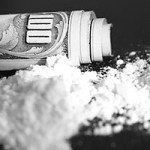 A group of scientists from the University of Massachusetts tested banknotes from more than 30 cities in five countries, including the United States, Canada, Brazil, China, and Japan, and found what they termed “alarming” evidence of cocaine use in many areas. For the scary details, follow me over the fold.
U.S. and Canadian currency had the highest levels, with an average contamination rate of between 85 and 90 percent which is nearly a 20 percent jump in comparison to a similar study conducted two years ago. The Chinese and Japanese currency had the lowest, between 12 and 20 percent contamination.
Scientists and the government have known for years that paper money can become contaminated with cocaine during drug deals and directly through drug use, such as snorting cocaine through rolled bills. Contamination can also spread to banknotes not involved in the illicit drug culture because bills are processed in banks’ currency-counting machines.
The scientists did not test bills from New York but found that larger cities like Baltimore, Boston, and Detroit had among the highest average cocaine levels. Washington, D.C had the dirtiest bills with 95 percent of the banknotes sampled contaminated with the drug. The lowest average cocaine levels in U.S. currency appeared on bills collected from Salt Lake City.
Cocaine adheres to the green dye on currency when someone uses it to snort the drug. Currency can also be contaminated when they come into contact with someone’s coke-laced hands.The drug then transfers onto clean bills in bank’s currency-counting machines or in people’s wallets or pockets.
Despite the high percentage of cocaine-contaminated banknotes, the scientists pointed out that the amount of cocaine found on most notes was so small that consumers should not have any health or legal concerns about handling paper money. In other words, “you can’t get high by sniffing a regular banknote, unless it was used directly in drug uptake or during a drug exchange. It also won’t affect your health and is unlikely to interfere with blood and urine tests used for drug detection.”
The scientists are not sure why tainted U.S. bills are up 20 percent, but suggest that “it could be related to the economic downturn, with stressed people turning to cocaine.”
A group of scientists from the University of Massachusetts tested banknotes from more than 30 cities in five countries, including the United States, Canada, Brazil, China, and Japan, and found what they termed “alarming” evidence of cocaine use in many areas. For the scary details, follow me over the fold.
U.S. and Canadian currency had the highest levels, with an average contamination rate of between 85 and 90 percent which is nearly a 20 percent jump in comparison to a similar study conducted two years ago. The Chinese and Japanese currency had the lowest, between 12 and 20 percent contamination.
Scientists and the government have known for years that paper money can become contaminated with cocaine during drug deals and directly through drug use, such as snorting cocaine through rolled bills. Contamination can also spread to banknotes not involved in the illicit drug culture because bills are processed in banks’ currency-counting machines.
The scientists did not test bills from New York but found that larger cities like Baltimore, Boston, and Detroit had among the highest average cocaine levels. Washington, D.C had the dirtiest bills with 95 percent of the banknotes sampled contaminated with the drug. The lowest average cocaine levels in U.S. currency appeared on bills collected from Salt Lake City.
Cocaine adheres to the green dye on currency when someone uses it to snort the drug. Currency can also be contaminated when they come into contact with someone’s coke-laced hands.The drug then transfers onto clean bills in bank’s currency-counting machines or in people’s wallets or pockets.
Despite the high percentage of cocaine-contaminated banknotes, the scientists pointed out that the amount of cocaine found on most notes was so small that consumers should not have any health or legal concerns about handling paper money. In other words, “you can’t get high by sniffing a regular banknote, unless it was used directly in drug uptake or during a drug exchange. It also won’t affect your health and is unlikely to interfere with blood and urine tests used for drug detection.”
The scientists are not sure why tainted U.S. bills are up 20 percent, but suggest that “it could be related to the economic downturn, with stressed people turning to cocaine.”
What do you think?

Me? I am not bringing such a thing like that but regarding on the post, I guess that’s dangerous.It’s not good for the health. Anyway, thanks for sharing.
If you will be asking me, my answer is a big NO! That is not good in our health, it will only destroy your life.
Wow had no idea the contamination rate would be so high!
Great post well written and with some good points thanks for taking the time to share.I think that alot of this money is cross contaminated in banks.